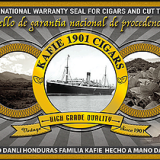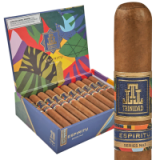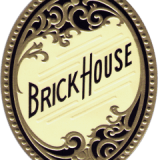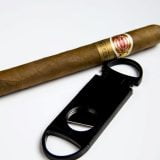Cigars have been a beloved pastime and passion for many over the years. It’s an age-old tradition that has endured the test of time and continues to be enjoyed by people around the world. Achieving the optimal environment for aging cigars is essential to getting the most out of your smoke, as it allows them to reach their full potential in terms of flavor and complexity.
Contents:
Aging your cigar requires patience, skill, and knowledge. It’s important to understand what type of climate you should aim for in order to achieve the best results with your cigars. The ideal temperature range for aging cigars is between 65°F (18°C) and 70°F (21°C), while humidity should remain at approximately 68%-72%. Too much or too little heat or humidity can drastically affect how well a cigar ages; hence why having an optimal environment is key when it comes to achieving great results with your smokes.
In addition to temperature and humidity levels, ventilation also plays a vital role in successful cigar aging processes. Good air circulation helps keep conditions steady within humidors or other storage containers where you’re keeping your cigars – this helps ensure they stay fresh while they’re aging properly. Airflow also ensures there are no unpleasant odors lingering on any particular stick – something that could otherwise be detrimental if left unchecked during long-term storage periods.
Having access to accurate hygrometers/thermometers will help you monitor these crucial parameters accurately so you can always maintain ideal conditions for aging your precious smokes – something that’s especially useful when trying to store multiple different types at once. High quality humidifiers such as crystal gel beads or Spanish cedar blocks allow you regulate moisture levels more precisely which again translates into better outcomes with regards to cigar maturation processes overall!
At its core, achieving the perfect environment for ageing cigars takes time, effort and dedication – but it’s worth it when you consider how much better aged sticks can taste compared regular ones bought off shelves. There are many different products available today designed specifically towards helping aficionados get most out their favourite smokes – each offering unique benefits according depending on user needs & preferences so make sure research thoroughly before investing in one particular item!
Aging: The Basics
Aging cigars is a process that requires some finesse, and it all starts with the environment. The optimal setting for cigar aging is cool, dark, and humid. Cool temperatures are ideal for preventing mold growth, while humidity levels between 65% to 72% help keep the cigar from drying out too quickly or becoming brittle. Moreover, darkness helps protect cigars from ultraviolet light damage.
For best results, try to maintain a consistent temperature of around 60-70 degrees Fahrenheit and relative humidity of around 70%. Any fluctuations in either temperature or humidity can cause severe damage to your cigars if left unchecked. A good quality humidor will go a long way in helping you achieve this level of consistency – they come in many shapes and sizes so you can find one that fits your needs perfectly. Investing in a hygrometer/thermometer combo device will help you monitor the internal environment of your humidor over time and make sure it’s working correctly.
Be sure to rotate your cigars periodically throughout the aging process as well – this helps them age evenly on both sides without any issues. It’s important to note here that not all cigars should be aged; only certain brands are suitable for long-term storage so be sure to do your research before attempting any major aging projects.
The Aging Process Explained
Aging cigars is a complex process that requires patience and precision. The optimal environment for aging cigars involves the right amount of humidity, temperature, and darkness. In order to properly age your cigars, it is important to understand how each element contributes to the overall flavor profile.
Humidity plays an important role in the aging process as it determines how quickly moisture is absorbed into the wrapper leaf of your cigar. Ideally, you want to maintain 70% relative humidity in order to preserve the flavors within your cigar without introducing too much moisture. Temperature also affects the rate at which flavors develop within a cigar; typically 65-72 degrees Fahrenheit provides the best conditions for flavor development over time.
Light exposure should be minimized during storage as UV rays can break down many of its components including essential oils and sugars. This will cause irreparable damage that can ruin an entire box of cigars if exposed for too long or at inappropriate times. While these three elements are key components when creating an ideal environment for aging cigars, there are other considerations such as airflow circulation and proper ventilation which should not be overlooked in order to achieve desired results.
Cigar Selection Considerations
Selecting the right cigar for aging is a critical step in achieving an optimal environment. Different types of cigars age differently, and some may not even benefit from long-term storage. When selecting your cigars for aging, you will want to look at the blend components, wrapper type, country of origin and size.
The blend components of the cigar are what give it its flavor profile and complexity; this should be taken into account when choosing cigars to store. A complex blend with many different flavors will stand up better to extended aging than one that has fewer components or simpler flavors. Wrapper type also affects how a cigar ages: natural wrappers tend to fare better over time than their flavored counterparts. Certain countries have more favorable climates for storing cigars–Cuba being one example–so looking into where a particular cigar was made can help determine if it’s worth stashing away for later use. Size matters when considering which cigars you’ll save; larger ring gauges are often more suitable for longer-term aging due to their higher filler content and increased ability to retain moisture over time.
Once you’ve selected your desired smokes based on these criteria, make sure they’re properly stored in order maximize their potential for successful long-term aging. It’s important to keep them at around 70% humidity levels and maintain constant temperatures so as not affect the structure or taste of the cigar during storage period.
Temperature and Humidity Control
The optimal environment for aging cigars requires a precise balance of temperature and humidity. Temperature is important as it helps control the fermentation process, while humidity maintains a moist atmosphere that allows the cigar to stay fresh over time. To ensure the proper conditions, cigar aficionados should invest in a reliable climate-controlled humidor or cabinet with adjustable controls. This will allow them to monitor and adjust the settings according to their preferences and desired results.
In addition to controlling temperature and humidity levels, one must also take into consideration other factors such as ventilation, air circulation, storage materials used, location of storage area within the home/office space and any additional lighting or heat sources nearby that could potentially impact cigar quality. Ventilation is essential for ensuring even temperatures throughout the room and keeping odors from accumulating inside the humidor/cabinet; however too much can cause drying out which is detrimental for long-term aging. Air circulation ensures all parts of your collection are exposed to consistent temperatures preventing hot spots from developing during prolonged periods of storage. Different types of wood used in constructing humidors may react differently when absorbing moisture which affects how often you need to monitor your cigars’ condition over time.
Consider where you place your humidor/cabinet – be mindful of direct sunlight exposure as well as any artificial light source nearby that could increase internal temperatures significantly if left on overnight or longer periods at a time – these changes can have negative effects on cigar flavor profile so be sure to check frequently. With careful monitoring and management techniques applied regularly, achieving ideal conditions for aging cigars should not be difficult once you become familiar with what works best for your individual needs.
Storing Cigars: Tips & Tricks
Storing cigars is a crucial part of aging them, and ensuring that they stay in optimal condition. The key to successful storage lies in the environment – temperature, humidity, and light must all be kept at just the right levels. It’s important to avoid fluctuations in any of these areas; a stable climate is essential for keeping your cigars fresh.
When it comes to selecting an ideal location for storing cigars, look for somewhere dark and cool with low humidity. While you don’t want your storage area too cold – aim for between 60-70 degrees Fahrenheit – you should also ensure that it isn’t too warm either, as this can dry out the tobacco leaves and cause your cigar to lose its flavor profile. High temperatures can encourage mold growth on the outside of your cigar wrapper which will ruin it beyond repair.
The relative humidity inside your cigar storage container should be set between 65-72 percent; anything lower than this could dry out your cigars over time while higher levels could cause condensation or damage the wrappers. If necessary, consider investing in humidifying devices such as gel beads or electric humidifiers which can help keep moisture levels within a suitable range year-round.
Getting the Most Out of Your Aging Experience
Aging cigars is a complex process that requires time, knowledge and patience. To ensure you get the most out of your cigar aging experience, it’s important to have the right environment. There are several factors that can help maximize the flavor and complexity of your cigars as they age, including temperature, humidity and light exposure.
When it comes to temperature, many cigar enthusiasts prefer an environment between 65°F – 72°F (18°C-22°C). This range allows for gradual development of flavors in the tobacco without risking damage due to over-fermentation. Humidity should be kept at around 68% – 72%. This will help prevent dryness while allowing enough air circulation so that your cigars don’t become overly soggy or moldy. Light exposure should be limited as much as possible; UV rays can cause discoloration in wrappers and reduce flavor potency. Consider investing in a humidor with a dark interior to protect your cigars from direct sunlight during storage.
Ultimately, creating an optimal environment for aging your cigars is key if you want to achieve maximum results from their fermentation process. Take some time to research different methods for controlling temperature and humidity levels before starting on this journey; once you’ve established ideal conditions for storing your cigars, all that’s left is practice patience.
Benefits of Long-Term Storage
When it comes to aging cigars, there are several benefits of long-term storage. For starters, storing your cigars for an extended period can help bring out the natural flavors and aromas of the cigar. This is because the tobacco leaves have time to blend with one another in a process known as marrying. The longer you store your cigars, the more this marrying will occur and give off a richer flavor profile.
Another advantage of aging your cigars is that they become less harsh when smoked due to oxidation taking place over time. Oxidation happens when oxygen interacts with components in the cigar like nicotine and sugar, which ultimately softens up its taste upon smoking. This also allows for any bitterness or sharpness from tobacco blends to dissipate as well, resulting in a smoother overall smoke experience than if it were freshly rolled.
Storing cigars over time also provides greater consistency between batches since each individual stick has been able to age for an equal amount of time before being smoked. This ensures that all sticks have had ample opportunity to marry together properly so no one smoker ends up having an overly bitter or unbalanced tasting experience from their batch. With these benefits combined, it’s easy to see why having a proper storage environment for aging your cigars is so important.
Risks of Poorly Aged Cigars
As an avid cigar aficionado, you know that achieving the optimal environment for aging your cigars is essential to ensure they reach their peak flavor potential. Poorly aged cigars can be a major disappointment, and may even carry certain risks with them.
When it comes to purchasing pre-made cigars, these are usually not ready to smoke right away. They will require some time in a humidor in order to bring out all of the flavors they have been designed with. If these cigars have been improperly stored before being purchased, then smoking them could lead to respiratory issues due to nicotine content or even taste-related problems from oxidation of the tobacco leaves.
For those who roll their own cigars at home, there are also risks associated with poor storage conditions during the aging process. As many experienced cigar makers know, allowing freshly rolled cigars too much exposure to heat or humidity can cause either extreme dryness or an overly moist texture when smoked – both resulting in a less than ideal experience for smokers. If proper sanitation techniques were not followed during the rolling process itself then this could also result in serious health consequences down the line should someone decide to smoke one of these improperly aged stogies.
It is important for cigar enthusiasts everywhere to understand that improper storage conditions while aging can drastically reduce a cigar’s lifespan and make them far more susceptible to damage from pests such as mites or mold over time – something nobody wants.











